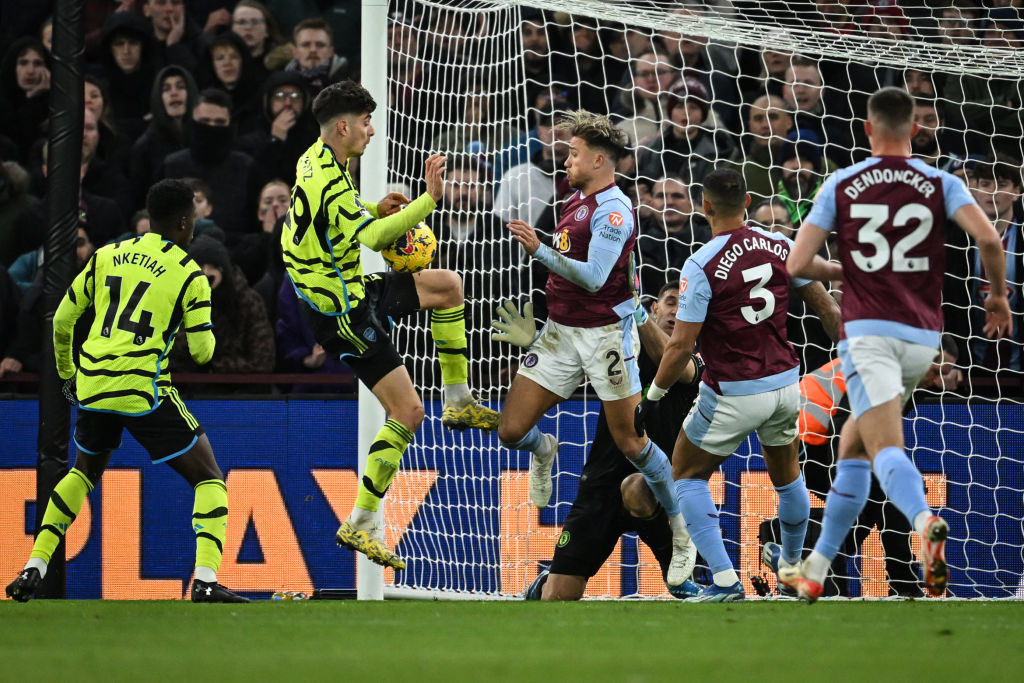
VAR’s review over ’s disallowed goal against was ‘not conclusive’ despite one angle showing the ball hit the star’s arm.
The Gunners on Saturday with international Havertz denied a late equaliser – a result which may be significant in the title race.
Havertz bundled the ball over the line , with the decision confirmed by a long VAR check after it appeared to touch his hand, as Unai Emery’s team claimed all three points.
Former Premier League referee Howard Webb has now explained why Havertz’s goal was not allowed to stand.
‘Once the on-field decision has been given as a disallowed goal, then the VAR checks the footage, just to make sure the referee has not mistakenly seen a contact on the arm,’ Webb told Match Officials Mic’d Up.
‘In that case, the goal should stand, if it’s only hit the body. But of course, the VAR has to check if there’s clear evidence that the ball did not hit the hand to intervene.
‘If it’s not conclusive, they’ll just leave this on-field decision alone. But actually, when you see the VAR’s process, they do get to the point where they see an angle that shows the contact on Havertz’s arm.
‘Interestingly, if it had been Nketiah who had scored the goal, it would have stood, because it only relates to the goal scorer – in this case, Havertz, who made contact with the arm.
‘It didn’t hit Nketiah’s arm – if he pokes it in, it’s a goal, because everything before that was all accidental.
‘He [Gillett]’s got a clean view of it, what, from 25 yards out. He does [make a good decision in real time].
‘And we’re always encouraging the officials, even with the existence of VAR, to be prepared to make positive, accurate, on-field calls.
‘We’ve said for a long time, good officiating starts on the field of play.
‘VAR is not there to referee the game – it’s there as a safety net for clear errors. Jarred sees this situation clearly from that position and penalises, and is right to do so – credit to him for doing that.’




















